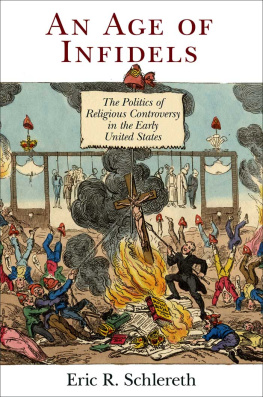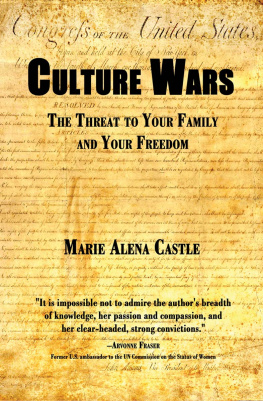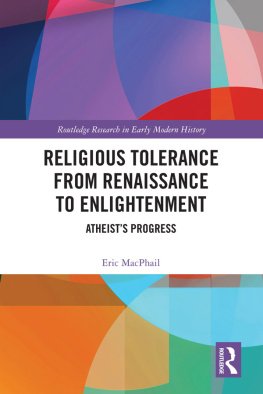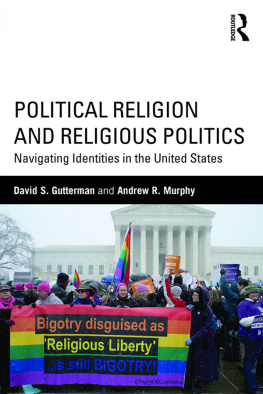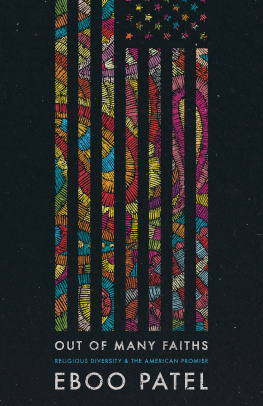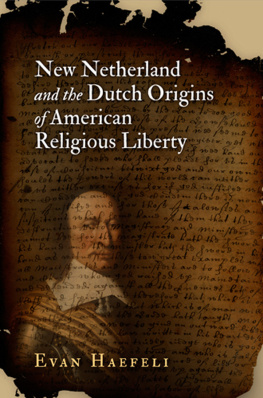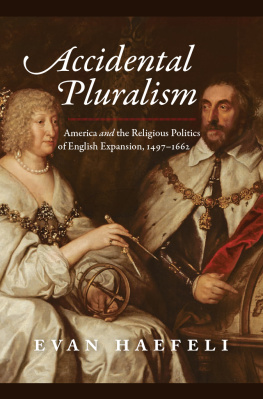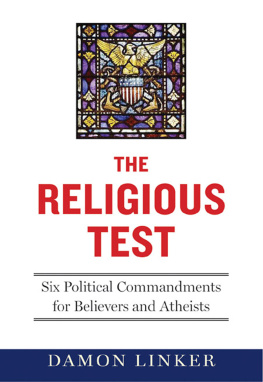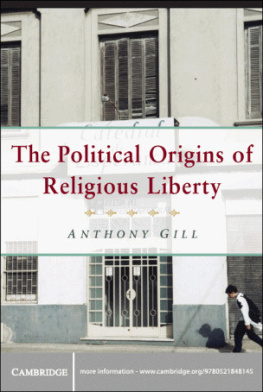An Age of Infidels
EARLY AMERICAN STUDIES
Series editors:
Daniel K. Richter, Kathleen M. Brown,
Max Cavitch, and David Waldstreicher
Exploring neglected aspects of our colonial,
revolutionary, and early national history and culture,
Early American Studies reinterprets familiar themes
and events in fresh ways. Interdisciplinary in character,
and with a special emphasis on the period from about
1600 to 1850, the series is published in partnership with
the McNeil Center for Early American Studies.
A complete list of books in the series
is available from the publisher.
Copyright 2013 University of Pennsylvania Press
All rights reserved. Except for brief quotations used for purposes of review or scholarly citation, none of this book may be reproduced in any form by any means without written permission from the publisher.
Published by
University of Pennsylvania Press
Philadelphia, Pennsylvania 19104-4112
www.upenn.edu/pennpress
Printed in the United States of America on acid-free paper
10 9 8 7 6 5 4 3 2 1
A Cataloging-in-Publication record is available from the
Library of Congress
ISBN 978-0-8122-4493-9
INTRODUCTION
Remaking Religion
James Ross thought Christianity was for the dogs. After all, he had mockingly administered the Lords Supper to several furry, four-legged communicants. At least these were the rumors about the Federalist candidate for governor of Pennsylvania in 1808. The states Republicans spread this story throughout Pennsylvania and beyond. Rosss supposed irreligion had been a political issue for nearly a decade. This latest irreverent act, his opponents warned, was another example of why Rosss unchristian sentiments left him morally bereft, thus unfit for political office. Rosss supporters agreed, for if the accusations were true they indicted Ross of a crime that must excite horror and detestation in every virtuous heart, and must exclude the perpetrators of it, not only from public confidence, but from private friendship and society. Both sides in 1808 found it difficult to ignore rumors about Ross because they raised vexing questions about how best to reconcile religious belief and political life. Indeed, concerns about the relationship between religion and politics proved urgent to many Americans in the generations following the Revolution.
History allowed no sure guarantees that the new United States would avoid the mire of religious and political conflict that gripped much of the European world for three centuries. Religious disputes had fractured Christian Europe along sectarian lines. More recently, the French Revolution amplified perceptions that atheism and violence were often grim companions to political change. From the mid-1770s onward, broad-ranging debates erupted in the United States about how or even if long-standing religious beliefs, institutions, and traditions could be accommodated within a new republican political order that encouraged suspicion of inherited traditions, institutions, and ideas. Things sacred did not seem automatically or entirely compatible with Americas new political culture. Public life in the early United States thus included contentious arguments over how best to ensure a compatible relationship between diverse religious beliefs and the nations recent political changes. In the process, religion and politics in the early United States were remade to fit each other. Specifically, religious conflict became safe for American politics.
Explaining how early national Americans remade religion and politics in such ways is the central focus of this book. Doing so elucidates interconnections between debates over religious knowledge and developments within American political culture. The history of religious knowledge in the early national United States is, in important respects, a political history. I define religious knowledge in broad terms to include historical definitions of religious truth; the standards by which individuals determined what was or was not a true religious belief; and the means by which individuals expressed and circulated, thus communicated, the religious beliefs they held as true. The rough-and-tumble world of early national politics offers great insight into the changing public authority of religious knowledge in the decades following the American and French Revolutions. The advent of partisan institutions including parties and elections; an increase in political communication, especially through newspapers; and the creation of political spaces such as voluntary associations within civil society each expanded opportunities for Americans who held competing notions of religious truth to pursue their beliefs in ways that would hopefully avoid the sectarian controversies of recent historical memory.
As a result, the context in which people expressed religious opinions and the implications of these expressions became more controversial than the beliefs themselves. Thomas Jefferson recognized this shift from content to context as the source of religious controversy when, in the 1780s, he wrote in his Notes on the State of Virginia that it does me no injury for my neighbour to say there are twenty gods, or no god. It neither picks my pocket nor breaks my leg. This shift had lasting influence. Decades later, the author of an 1834 article in the New Hampshire Gazette smeared a Boston politician for his supposed acquaintance with the infamous freethinker Abner Kneeland. In stating these facts, he clarified, we wish to be understood as casting no reproach upon any man for his belief or want of belieffor we regard mens actions more than their faith.
Attention to context over content had intellectual and political implications. Intellectually, it marked a growing acceptance that notions of
James Rosss experience provides an even more provocative lens on debates over the context of religious expression rather than the content of belief. Republican Simon Snyder defeated Ross in Pennsylvanias 1808 gubernatorial election by nearly twenty-eight thousand votes. Like many Federalist politicians of the era, Ross stopped pursuing public office. He spent the rest of his life practicing law in western Pennsylvania. Although Ross was not defeated only because of his purported disdain for Christianity, Pennsylvania Federalists exerted considerable energy defending him. Rumors such as those surrounding dogs, James Ross, and the Christian sacraments thus suggest more than a heated partisan political culture.
The accusation against Ross in 1808 was but one episode in the early republics larger history of infidel controversies. In a strict sense, infidels were non-Christians, specifically Muslims and Jews, according to traditional Christian usage of the term. Attacks on Ross intimate a more capacious and protean view that an infidel was any person whose religious expressions seemed politically or culturally subversive. Infidel controversies in the early United States are illuminating because they raised questions about the political and cultural consequences of religious opinions more generally as well as the meaning of religious difference in a republic. During infidel controversies, Americans performed the heavy intellectual lifting necessary to render deep differences of religious belief politically tolerable and even useful, but not dangerous.

